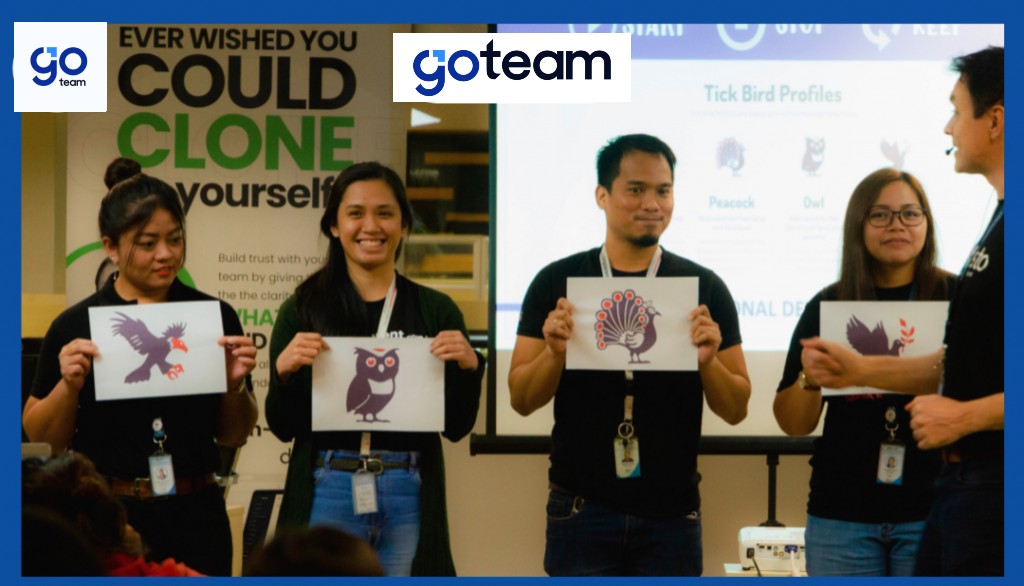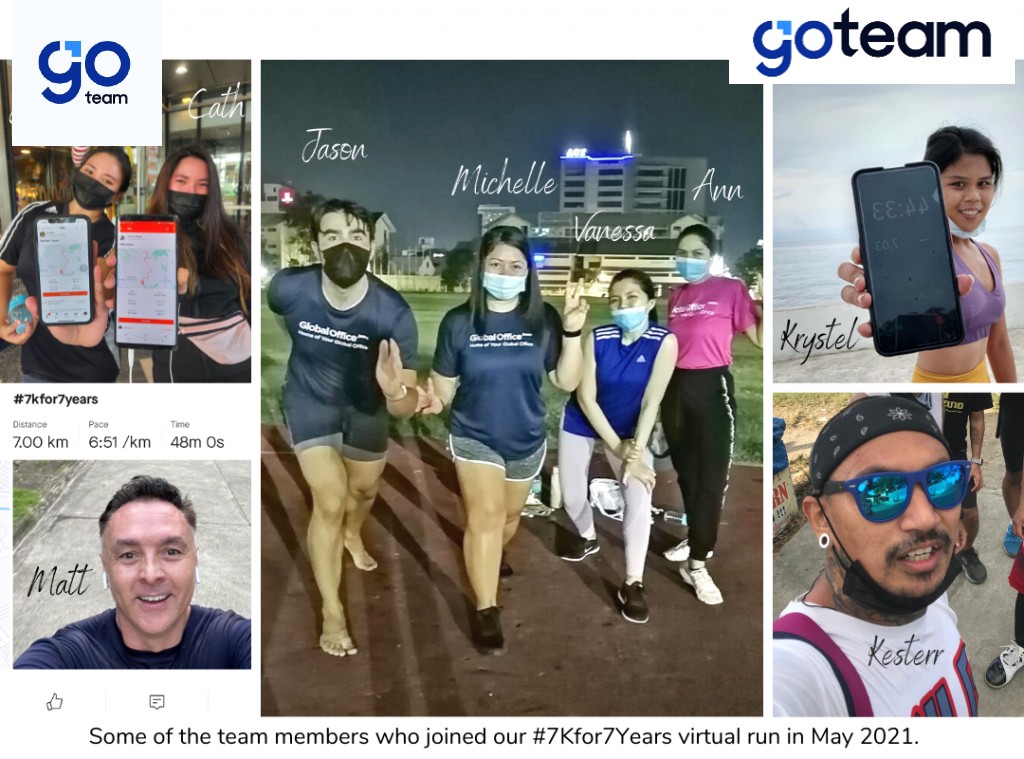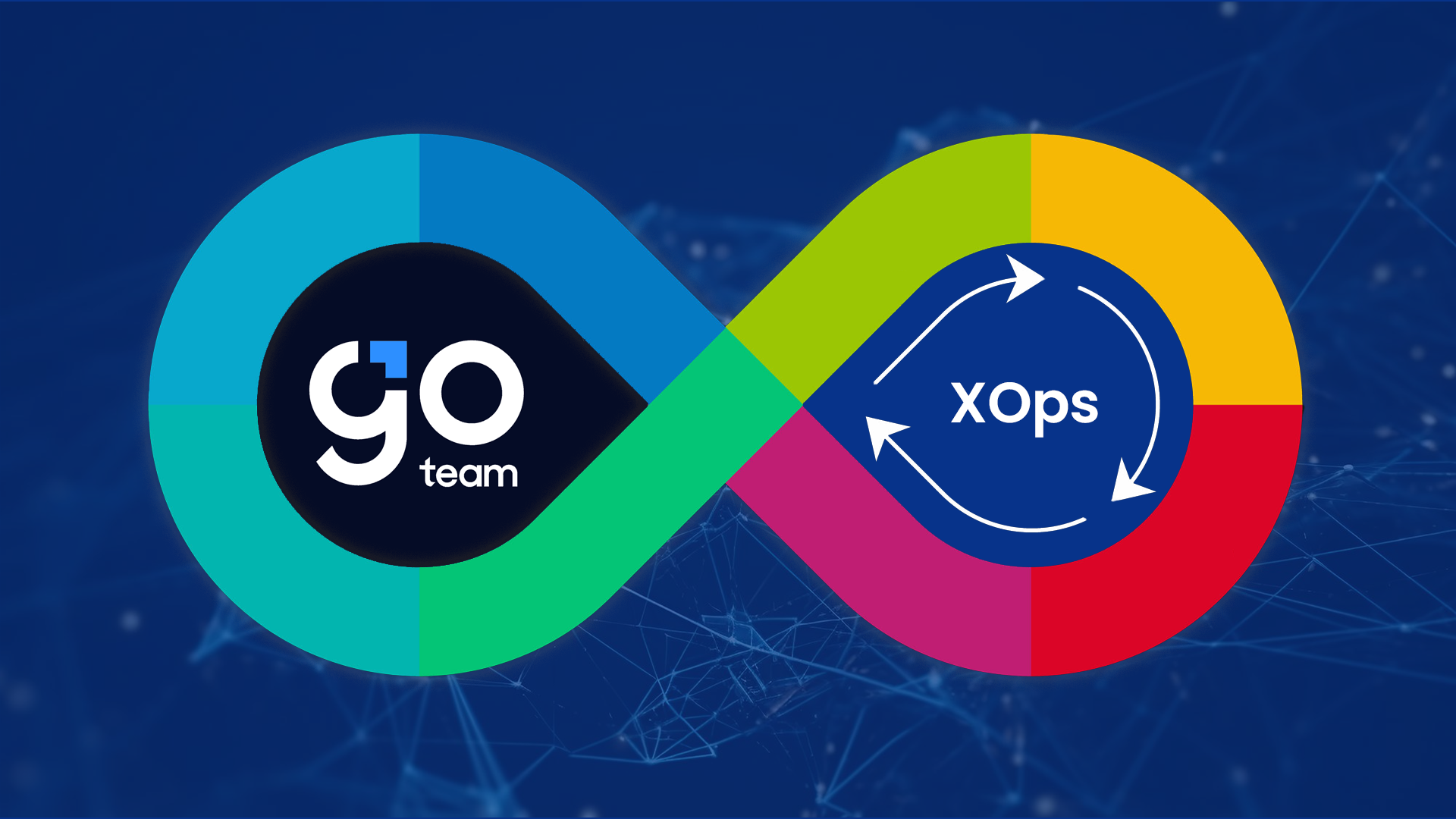What is the biggest mistake business leaders and their teams can make while working from home? GoTeam Founder Matt Kesby talked about how that mistake can be avoided in a recent conversation with the business leader Mike Grogan.
It wasn’t just how we communicated at work that changed since the pandemic began. How often we needed to communicate changed as well.
In a recent conversation with the business leader Mike Grogan, GoTeam Founder and CTO Matt Kesby talked about the need to clarify expectations amid so much uncertainty. He shared a communication and leadership framework that helps diverse teams exchange feedback and a simple exercise that has helped set a more productive tone for our daily huddles.
Since March 2020, about 70 to 80 percent of our GoTeam has been based at home, supporting clients in Australia, the United States, the United Kingdom, and a growing list of countries.
The public health restrictions that made working from home necessary have also revealed something we have long been grateful for in the tribe: that given the right frameworks and tech tools, meaningful, high-impact work can be done virtually anywhere in the world.
Here are some helpful ideas to help businesses make the most of being in global teams, from that conversation between Matt and Mike.

Question 1 from Mike Grogan: What was your biggest mistake in trying to influence others and what did you learn from it?
Matt Kesby: I remember sitting on a plane with Chris McChesney, who was one of three men who wrote “The 4 Disciplines of Execution.” This was a very humbling moment. Chris said, “”Matt, nobody cares about your idea!”
At times, we really want to influence another and we’re so caught up in whatever the idea is or the goal or the change that we’re trying to drive next and they don’t care about it yet. And that’s probably the word that’s missing from the end of it. (“Yet.”)
They don’t care about it yet—at least not until we’ve shown how much we care and involve the other party in getting to the resolution or solving the problem so that it now becomes their idea.
And one of the simplest ways I’ve found in helping to get there especially if you’ve got a goal and you need to bring the team on to achieve it is to do a brainstorming exercise with the team. It can take about 7 minutes, when you do it well.
This will help you get some ideas and move your team from the natural state as a human being (which is “That sounds different, so my wall’s gonna go up because physiologically, I’m hardwired to do that”) to the safety-risk mechanism. Simply listening breaks that wall down.
I think the funny thing is, “Nobody cares about your idea” has been impactful.
Question 2: What belief did you have about leadership or management that other people may find crazy?
This was validated by someone actually saying I was crazy. Or that we were crazy as a business. And it’s the concept of acting with love.
It was our theme for 2020.
One person said, “What are you talking about? You can’t do love in the workplace!”
And what was difficult to hear at that point was I couldn’t see that you’d do it any other way. Ultimately this comes from the fact that everybody deserves to feel safe.
And if we look at our brain, it’s sort of split into 3 sections. We’ve got our “fight or flight” zone or our reptilian brain, that’s the unsafe area. We’ve got our emotional zone or mammalian brain, which is our safety risk area. And then we’ve got our prefrontal cortex, where we do all those wonderful calculations and which takes care of executive functioning. That’s the safe zone.
Any time that we’re having an engagement with another party, if we’re constantly listening out for whether the other person is feeling safe, we help them move into that creative zone that allows them to take the right levels of action.
And if they’re not, then it’s within our power to help care for them to get them into a place where they can give their brightest and best and get that flow state. That requires making a decision to act with love and not fear in our responses.
So that’s the crazy one from my end, it’s Act with Love.
Question 3: What is the biggest mistake you see both employer and employees making while working from home?
We’ve been doing remote work for quite some time. We’re both in the office, as well as at home. We had 457 people in the office and needed to mobilize about 350 of them to work from home very quickly in March 2020, when the quarantine restrictions began to take effect.
To me, there are 2 words here: clarifying expectations.
With all that change that occurs, very quickly everyone can make assumptions about what should happen next. However, we need to stop and regularly communicate to clarify what the expectations are. And it’s OK for expectations to change.
Having the right language to be able to have these conversations in a way that everyone feels safe is critical. Reflecting on 2020, that was a massive, incredible change! The largest year of change we’ve seen.
But it was all done because of the forces of the market and what was going on in the world. It wasn’t change by choice. I think 2021 now is the opportunity to continue to change at a rapid pace because we’ve proven that we can and we’ve done it well.
This year will be about choice and that requires lots of clarification of expectations.
Question 4: Most employees in Asia are afraid to give honest feedback to their boss. What has worked for you to help others be more open with you, especially while working from home?
Mike Grogan: Matt, I’m very curious about your answer because, in theory, it should be even harder for you to get honest feedback or more direct feedback, being a foreigner, someone who’s not born into the Filipino culture.
Matt Kesby: Let’s add the fact that I walk into the office and I’m 6’2”, so all of a sudden the risk is that you can be seen as a dominating type figure. With that risk, it’s even more imperative for me to create a foundation where people can communicate. Even if we just go with the cultural differences—Philippine culture is a lot more hierarchical than Australian culture—that alone is a big gap to overcome.
How do you set the stairs, if you will, or the ladder to allow someone to get to the level where you can have a conversation and be peers? And that’s the level we want.
It’s one thing to say, Just give me feedback. I’ll take it. Naturally, if we don’t respond well in the moment, even a microexpression because we’re caught off-guard could be enough to set someone off and feel like maybe it isn’t safe to give feedback.
There’s one framework that’s been really useful as a foundation for us and it’s the 13 behaviors of trust. It comes from Stephen M.R. Covey’s “The Speed of Trust.”
Some of these are behaviors like:
Demonstrate respect.
Confront reality.
Talk straight.
Clarify expectations.
You’ll often just hear it in our language around the organization. Someone will say, “Hey, Matt, can I talk straight to you?” And I’ll say, “Yes, I’d love that.”
And that’s more powerful than saying, “Can I be honest with you?” Because sometimes “May I be honest with you?” might make someone ask, “Does that mean you’re not being honest the rest of the time?”

Actually, as soon as Covid hit, the first thing we did was stop and did a full retraining session with all the team around the 13 behaviors of trust so that we’d have some language while going into a time of high ambiguity and uncertainty.
Question 5: What was the smallest change you made to your personal leadership style in the last 12 months?
We used to start our daily huddles with the one-word barometer so that people could acknowledge how they’re feeling. Recently we’ve kind of run a social experiment in our organization and probably over the last 8 weeks now we changed it from the one-word barometer at the start of the daily huddle to 2 words.
We ask people to share a release word and then a power word. The release word is about acknowledging whatever it is you’ve been thinking about for the last 24 hours, 22 minutes, 22 seconds. Whatever it is that’s on your mind and whatever emotion that’s associated with it, say that word and let it go.
And then pick what your power word is going to be for the day that’s going to help you give the brightest and best contribution, your highest value, and get you into that flow state.
In a way, it’s kind of like a mini-meditation moment to flip the “Game on” switch and say, “Let’s do this!”
We take turns leading the daily huddle so that each person in the team’s got the ability to share that. For me, it’s been one of the most remarkable and joyful moments and very helpful personally because working at home can be quite challenging, with everything that’s going on.
It’s important to acknowledge what’s happening inside so you can move forth and deliver!

Question 6: When you see a first-time supervisor or an expat leading an Asian team for the first time struggle in their role, from your experience what is the real reason they are struggling and what is your best advice to help them succeed?
This is a huge one, right? It’s a minefield. I think specificity helps if you were to help this individual. Fundamentally, everything is communication at the end of the day. Everything.
There’s one practical tip that I would share with any leader and it’s the concept of closed-loop communication. But said differently, just bouncing back what the other person has said.
Now often communication comes out one-way and the other person hears the instruction and the leader asks, “Did you get it?” And the person says, “Yes!”
But they’re too fearful to actually say, “I don’t get it.”
So you just ask them, “Could you bounce back to me what you’ve just heard?” And we’ve found that those words “bounce it back”—imagine a basketball that’s being bounced back to the other person—have been enough to trigger this closed-loop communication piece.
Otherwise, it’s quite awkward to say, “Oh, I’m not confident that you understand, so tell me what you heard.” It’s almost rude. And then the other part, too, if you show a bit of humility as a human being here: “Guess what, leader, we probably don’t give very clear directions anyway.”
So it’s critically important that we can hear back from our team if they’ve heard what we’re thinking. I don’t know if there’s anyone on the call who’s ever done this before. You’ve gone to give someone, “Hey, here are the 5 things you need to do.” And then you find out later on that you forgot to tell them the sixth step and you wonder why it didn’t work out the way that you expected it to do.
And so that’s the humility moment. We’re not always going to be right.
You don’t need to be right actually. You just need to ensure we have high-quality communication and then we can win together.
Mike Grogan: So relevant! One of the things I learned from my mentor was when he said to play it back if people are not bouncing back. Just use the phrase, “If I hear you correctly, are you saying…” and just use that interplay. I love this. Tiny, tiny, tiny changes can have a huge impact on improving communication.

Question 7: How do you personally de-stress from work (managing your mental and emotional health) especially while working from home?
It’s so simple. It’s exercise. I work out 5 times a week and lift heavy weights. I’ll be 44 soon and over 40 as a male, it’s really important to be doing the right level of exercise. Our testosterone levels start to drop, our cortisol will increase. If we don’t take the time to actually change that portion of our physiology, we’ll continue to get more stressed and more stressed out.
For me, it’s been lifting heavy weights and it’s been very rewarding. Probably working from home has given me the permission to stop and do that, exercise more, than get up, eat something, rush to the office and, you know, work these usual long hours. Now I’m stopping and giving myself permission to exercise more, putting it in the calendar and getting it done.
Mike Grogan: Oh, I love that and actually I have a similar answer if someone were to ask me what’s the one thing I do that has the biggest benefits? I would say the same thing. Exercise! Just a quick follow-up question. If you didn’t exercise, if you skipped your exercise, what would your body tell you?
Matt Kesby: I don’t think as clearly during the day.
On Monday mornings, I don’t do the exercise because I’ve got very early morning meetings and I feel it on Mondays. If there was one day to do it at the start, it’s probably Monday. Without exercise, I’m less effective as I get to the afternoon with the decision-making. It’s fascinating.
Mike Grogan: Wonderful, wonderful. I love that advice! And it could be as simple as a walk. Something to get the circulation moving. It does impact the brain. The science is absolutely conclusive about that.
About GoTeam (formerly Go Virtual Assistants)
GoTeam, formerly GO Virtual Assistants (GO-VA) Inc. is a registered Australian-Filipino owned company growing in the heart of Cebu City, as well as a growing number of key cities in the Philippines.
Our HQ is situated in an IT complex with modern facilities, although since March 2020, more than 70% of our team members have been working from home.
Our enhanced operations and streamlined services provide scalable opportunities that spell sustainability, growth, and success for any business venture. As your global team members, GoTeam’s goal is to create winnable games and strategies across all the work that we do, knowing that your success is our long-term fulfillment.
We help Australian, NZ, US, and UK businesses increase revenue, reduce costs, and scale through outsourced offshoring. This also creates for us the opportunity to be a catalyst for people to exceed.
AU (+61) 2 7227 8809
US (+1) 302 207 2767
PH (+63) 032 238 7448
9th Flr, i1 Bldg, Jose Ma. del Mar St, IT Park,
Cebu City, Philippines 6000
Website: https://go.team
Careers: https://go.team/ph/
Email: sales@go.team
Email: careers@go.team
We always take the time to learn about effective communication frameworks and getting our physiology under control so we can respond and take action amid uncertainty. If you’ve always wanted to belong to a work tribe that is committed to your growth, come join our tribe! Your next, more remarkable career could be here: www.go.team/ph!


















